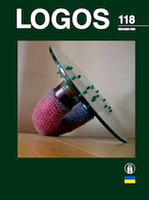Newtono matematikos poveikio atsklaida Rousseau filosofijos tyrimuos
Unravelling the Influence of Newton's Mathematics on Rousseau's philosophical Thinking
Author(s): Vygandas AleksandravičiusSubject(s): Epistemology, Early Modern Philosophy, Philosophy of Science
Published by: Visuomeninė organizacija »LOGOS«
Keywords: Rousseau; Newton; Principia Mathematica; analysis; synthesis; discovery; justification;
Summary/Abstract: Many stereotypical clichés hinder the study of the connections between Rousseau's and Newton's work. These are the beliefs that Rousseau was an enemy of science, and that Newton was exclusively concerned with scientific research, pushing it along the path of positivist progress, and that he had nothing to do with philosophy or religious pursuits. There is some stereotypical truth in these stereotypes, but what is lacking is a deeper understanding of these authors, which is a prerequisite for understanding and appreciating their interaction and its implications. It could have been, and still is, significant. A fresh and more attentive look at Rousseau and Newton, which is increasingly characteristic of recent studies of their work, reveals many things where they are fundamentally linked. The mathematical instrumentalization of knowledge of nature - which was Newton's main proposal in his epoch-making Principia Mathematica - opens a philosophical perspective that Rousseau, who knew mathematics, should not have overlooked. He also studied the mathematics of Newton's Arithmetica Universalis (1707).
Journal: LOGOS - A Journal of Religion, Philosophy, Comparative Cultural Studies and Art
- Issue Year: 2024
- Issue No: 118
- Page Range: 16-25
- Page Count: 10
- Language: Lithuanian

